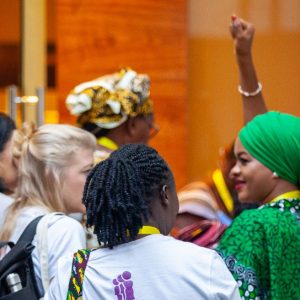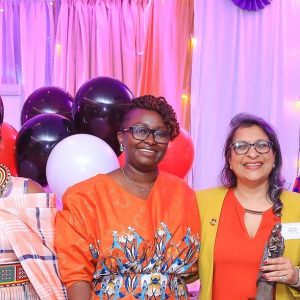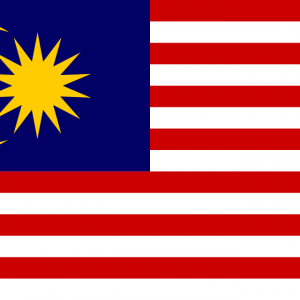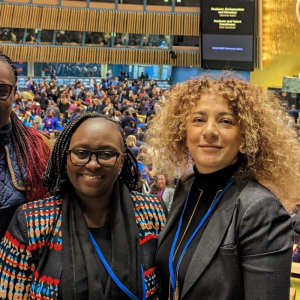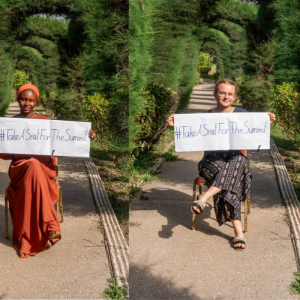On May 22, Tostan’s social mobilisation team in Sédhiou, Senegal – a group of community volunteers who organise and lead awareness-raising missions to share messages about human rights, the harmful effects of female genital cutting (FGC), and the growing FGC abandonment movement – organized a sharing seminar funded by the Orchid Project. The event’s objectives were to inform local community leaders about the work that the social mobilisation team is doing, why they are doing it, and also to open up a dialogue about combining efforts to support the movement to abandon FGC.
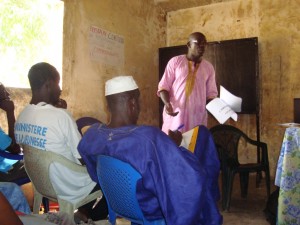
Tostan supervisor Mamadou Diarra Camara leads a discussion on social norms during the sharing seminar in Oudoucar
The 45 people that attended this seminar in the village of Oudoucar were united by their passion to end the practice of FGC and their desire to learn how they could coordinate their efforts. The sub-prefect of the district of Diéndé opened the meeting by encouraging those present to listen and ask questions with an open mind. He stated, “No one can ignore that in our district, as elsewhere in the Sédhiou region, the situation regarding the rights of women and young girls is very worrying.” He said that in order to address these issues, including FGC and child/forced marriage, the community needs to act quickly and in a coordinated manner. He hoped that this sharing seminar would be “the first milestone in a process that will lead to a happy ending.”
Sékou Ndiaye, an imam from the village of Sakho, shared an inspiring story during the meeting that demonstrated the very real effects of the social mobilisation team’s missions. He had recently passed through a village that had been visited previously by this social mobilization team. Sékou happened to arrive in the midst of a disagreement between a woman and her husband. The woman wanted her daughter to be cut. Female genital cutting is linked to respectability and marriageability. In many communities, a woman who had not been cut would have no status; she would be unable to wash clothes or cook food for others or participate in community discussions.
Imam Sékou Ndiaye shares his experience of the social mobilization team’s work with the team’s supervisor Abdoulaye Kébé
However, her husband was refusing to allow his daughter to be cut. Sékou told us that in this man’s argument, he cited to his wife the social mobilisation team’s visit as the reason why he knew that their daughter should not be cut. Now that he and their community had been informed of the harmful health consequences that can be linked to this practice, he would not permit his daughter to be cut. In the end, the conflict was resolved and the girl was not cut.
It was a motivating story, reaffirming for the social mobilization team members the importance of their work. The team knows that changing a social norm such as FGC takes time. One short visit explaining the practice’s harmful effects doesn’t cause abandonment overnight. But to know that the information they shared had the power to prevent this one girl from being cut was a reminder to the team, and everyone present at the meeting, of the value of their work towards the abandonment of FGC.
The sharing seminar in Oudoucar served to bring together influential community members and establish connections that can strengthen the movement for the abandonment of FGC. One participant, a teacher in Oudoucar, expressed his gratitude for the organisation of this seminar. He said that it is important for people in all sectors, whether education, health care, or government, to see that they are not isolated in their own efforts to end FGC. Instead, everyone is working to achieve the same end result. Unifying their efforts will ensure that the issue of FGC can be addressed from all sides in order to arrive at a permanent abandonment of this harmful traditional practice.
Story by Allyson Fritz, Tostan
This blog is part of a series on the Social Mobilisation project that Orchid Project funds in support of Tostan’s long term Community Empowerment Programme. Social Mobilisation is focused on ensuring the acceleration of abandonment of FGC in Senegal. Teams of volunteers who have already abandoned FGC, called social mobilisation agents, visit and create dialogue with inter-connected communities on human rights and the negative consequences of FGC. Their work aims to spread the message of abandonment and encourage others to join them.
Social mobilisation agents are individual members of the community who have been inspired by their understanding that FGC is a harmful practices, and are eager to share their own experiences with others. Often, they are religious, traditional or community leaders who are widely respected and well-connected, active, influential participants.
You can find out more about Social Mobilisation by clicking here. If you would like to support this work, please click here.

